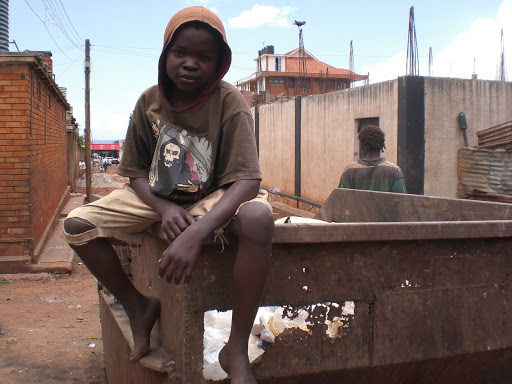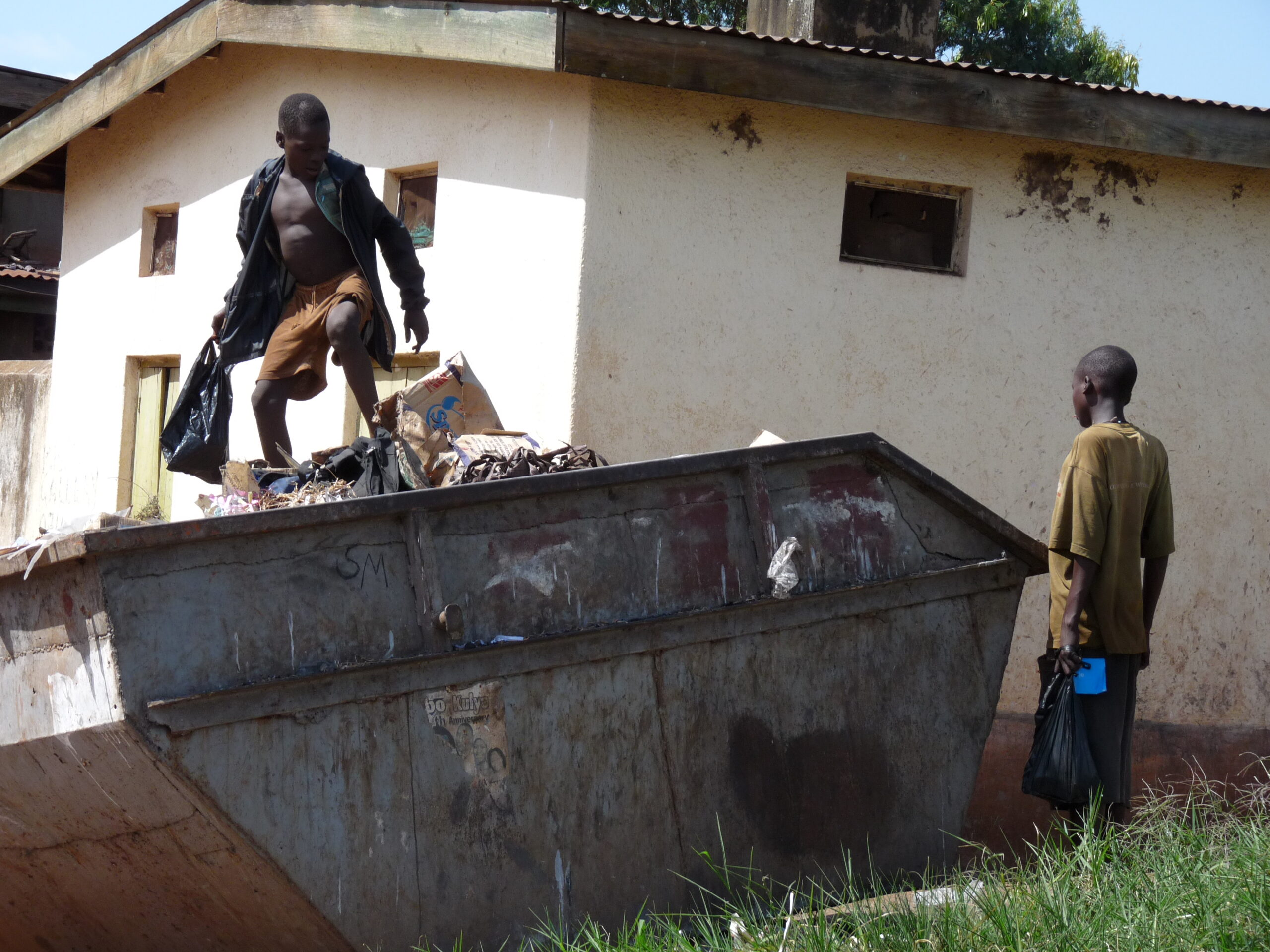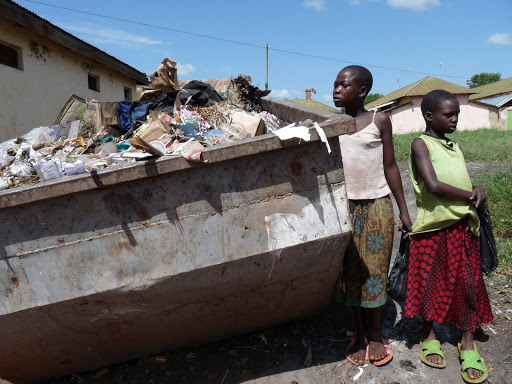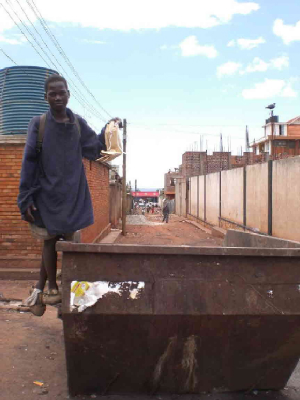When asked what the worst thing about street life is, the answer from the children is almost always “the nights”.

If you were to walk through the streets of Jinja after dark you would see the pavements crowded with children, exposed to the elements, with nothing more than plastic sheets or cardboard boxes to cover them. Despite Uganda’s balmy climate, its nights can be cold, and bring with them countless mosquitoes and the added threat of malaria, a disease that kills over 1 million people a year, 90% of whom are in Sub-Saharan Africa according to UNICEF.
With the darkness comes potential abuse, in all of its most horrific forms. Verbally, they are told they are worthless, no better than the vermin they share the streets with. Physically, they can be beaten by anyone who inclines to do so. And then there are the people who roam the streets looking for children to sexually abuse, or use to take the risk for them in criminal acts like carrying stolen goods. Against all of this, the children living on the streets have little protection.
Tom*, aged 14 tells us “the community accuse us that we are responsible for some bad deed but this is not true. They need to change their attitude towards children living on the street and see us as their children too.”
The authorities whose duty it is to bring security and safety can be the perpetrators themselves, regularly rounding up the children to lock away in the local jail.
Here they can be crammed into tiny rooms with the same adults they have been trying to escape from on the streets.


The days bring no rest either as each child’s struggle for food begins once again. Imagine always being hungry.
Even when you do get a little food it’s never quite enough, and you’re already thinking of where your next meal is going to come from.
These children are forced to survive by their own industry, no matter how young they are.
They can be seen picking through the rubbish for food, or for plastic bottles or scrap metal to sell.
But after all of their hard work and searching, half a dozen plastic bottles will only get them 3-4 pence; hardly enough to live on.
Sadly, life on the street often brings with it temptation. Many of the children turn to alcohol, drugs, or petrol sniffing; anything to numb their minds from the misery they face everyday in their struggle to survive. Inevitably, these habits need to be funded, and some children begin to steal in order to finance them. If people already treat you like a criminal for sleeping on the street, what is to stop you from becoming one?
Children experience living on the streets in different ways
Full-time children on the street
These are children who live full time on the street, day and night. They generally come from towns or villages further away from Jinja. They move around from town to town looking for opportunities. One week they may be in Jinja and the next in Kampala. A lot of full-time children have been on the street for many years and it can be the only life they feel comfortable with now. Full-time children on the streets have generally run away from home for a variety of different reasons.
Daytime children on the streets
Jinja is based close to Masese, a slum with a population of around 10,000 people. From here, many children come to the street each day in search of food and money through work or begging. Often, it is the parents encouraging the children to go to the street to work to bring home money for the wider family. In some cases, the children live in child-headed households and have no option but to come to the street to earn money so that they can pay their rent and eat. At the end of a long day on the street, these children return to Masese to sleep. Although conditions here are dirty, noisy and often dangerous, they can at least sleep with the safety of a family around them.

Why do children run away to the streets?
The main reasons we have identified are:
- They have been orphaned and have no relative/s willing to support them.
- They are abused or rejected by a family member; often a step-parent who does not want them around.
- Their family cannot afford to support them and they run to the street in search of money and opportunities.
- They are encouraged by other children to go to the street in search of money and opportunities.
- They are being forced into a bad situation they disagree with such as early marriage.
- They are escaping the consequences of something they did at home for example stealing a loaf of bread.
* names are changed in line with our Child Protection Policy
Thank you
We are grateful to all our supporters for helping us not only provide for children but also supporting us to understand why a child might end up on the streets. It is with your help that we are able to be their voice and spread awareness both in Uganda and internationally.
